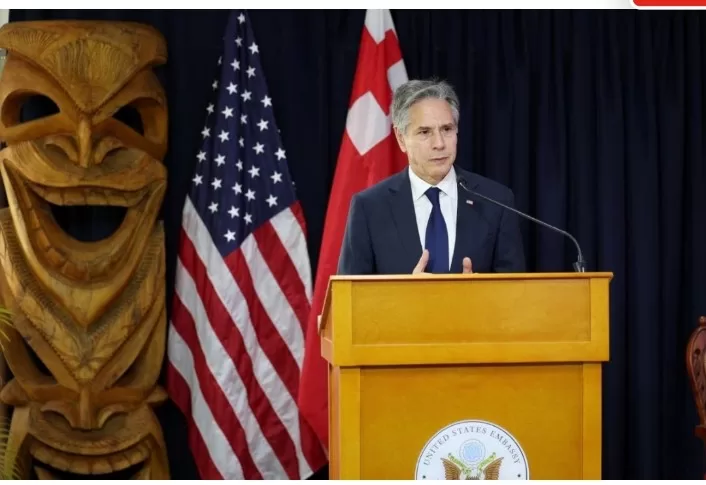In a striking turn of events, former Pentagon staffer Michael Rubin has voiced his strong reservations regarding the recent statements made by U.S. Secretary of State Antony Blinken. Rubin’s remarks come in response to Blinken’s assertion of the United States’ vigilance concerning ‘transnational repression,’ which, albeit indirectly, references Canadian Prime Minister Justin Trudeau’s claims regarding the demise of Khalistani separatist-terrorist Hardeep Singh Nijjar.
Blinken, in a carefully worded statement, called upon India to cooperate in the ongoing investigations, refraining from direct commentary on the subject. He expressed deep concern over the allegations raised by Canadian PM Trudeau, emphasizing the importance of the Canadian investigation’s progress and urging Indian cooperation.
“We are extremely vigilant about any instances of alleged transnational repression, something we take very seriously and it’s important for the international system that any country that might consider engaging in such acts not do so,” the U.S. Secretary of State declared.
The allegations by Prime Minister Trudeau implicated India in the June killing of Hardeep Singh Nijjar, who was sought by the National Investigation Agency (NIA) for involvement in funding terrorism, conspiring to commit murder, and expressing intentions to carve out Khalistan from India. This led to diplomatic expulsions between the two nations.
Michael Rubin, a former Pentagon official and senior fellow at the American Enterprise Institute, swiftly criticized Blinken’s statement. Rubin argued that the Canadian government had not substantiated their claims with credible evidence and accused Trudeau of making hasty allegations. Rubin emphasized that Nijjar, far from being a mere plumber as portrayed by Canada, had “blood on his hands” due to multiple attacks.
“Let’s not fool ourselves, Hardeep Singh Nijjar was not simply a plumber any more than Osama Bin Laden was a construction engineer. He had blood on his hands through multiple attacks,” Rubin asserted.
Rubin challenged Trudeau to provide evidence supporting his claims and questioned why Canada was sheltering a terrorist. He asserted that what was at play was not ‘transnational repression’ but rather ‘transnational terrorism,’ suggesting that Blinken’s stance might be perceived as hypocritical in light of recent U.S. actions against figures like Qasem Soleimani and Osama Bin Laden.
The ongoing diplomatic tensions between Canada and India continue to be a subject of international interest and scrutiny.







